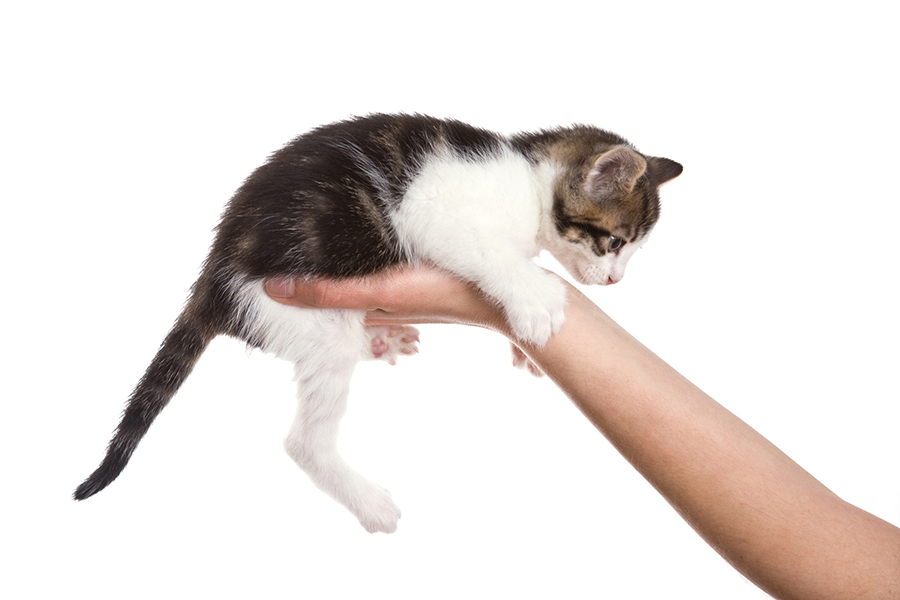Toxoplasmosis
What is toxoplasmosis?
Toxoplasmosis is an infection caused by a single-celled parasite called Toxoplasma gondii. The parasite is found throughout the world. Toxoplasma is one of the most well-known zoonosis transmitted from cats to humans however the risk of contracting this parasite from your cat is extremely small provided you follow simple hygiene measures.
How can I contract toxoplasmosis?
- Through accidental ingestion of contaminated cat faeces. This can occur if you accidentally touch your hands to your mouth after gardening, cleaning a cat’s litter box, or touching anything that has come into contact with cat faeces.
- Through ingestion of raw or partly cooked meat, especially pork, lamb, or venison, or by touching your hands to your mouth after handling undercooked meat.
- Through contamination of knives, utensils, cutting boards and other foods that have had contact with raw meat.
- Through drinking water contaminated with Toxoplasma.
- Although extremely rare, by receiving an infected organ transplant or blood transfusion.
What are the symptoms of toxoplasmosis?
In humans:
- For those with a normally functions immune system, clinical symptoms are usually mild or non-existent. If present may include flu-like symptoms, swollen lymph glands, or muscle aches and pains that last for a month or more. However, most people who become infected with toxoplasmosis do not know it.
- Persons with weak immune systems, such as infants, those with HIV/AIDS, those taking certain types of chemotherapy, or persons who have recently received an organ transplant, may develop severe toxoplasmosis. This can cause damage to the brain or the eyes.
- Most infants who are infected while in the womb have no symptoms at birth but may develop symptoms later in life. Only a small percentage of infected newborns have serious eye or brain damage at birth.
In many cats, Toxoplasma infection will cause no detectable illness however in some cats it can cause the following:
- Fever, loss of appetite, weight loss, lethargy
- Breathing difficulties due to pneumonia
- Inflammation in the eye (red eyes, swollen eyes, painful eyes)
- Yellowing of the gums and whites of the eyes due to liver disease (jaundice)
- Tremor and seizures
- Less commonly: enlarged lymph nodes, vomiting, diarrhoea, muscle pain
How can I prevent toxoplasmosis?
There are several general sanitation and food safety steps you can take to reduce your chances of becoming infected.
- People in ‘high risk' groups (e.g., pregnant women, immunosuppressed individuals, young children) should not have contact with or handle the cat's litter tray
- Empty litter trays daily, so that oocysts do not have sufficient time to sporulate (become infective) while in the litter tray
- Wear gloves when handling cat litter and wash hands thoroughly after cleaning the litter tray
- Use litter tray liners if possible and periodically clean the litter tray with detergent and scalding water (which kills oocysts)
- When preparing raw meat, wash any cutting boards, sinks, knives, and other that might have touched the raw meat thoroughly with utensils with detergent in hot water to avoid cross-contaminating other foods. Wash your hands well with soap and water after handling raw meat.
- Dispose of cat litter safely. For example, seal it in a plastic bag before putting it with other household waste
- Cover children's sandpits when not in use to prevent cats using them as litter trays
- Feed only properly cooked food or commercial cat food to your cat to avoid infection
- Gloves should be worn when gardening and hands thoroughly washed after contact with soil which may contain sporulated (infectious) oocysts.
- Fruit and vegetables should be thoroughly washed before eating to remove any oocysts present on their surface
- All food preparation surfaces and utensils should be cleaned before and after use to inactivate any tissue cysts.
- Meat should be cooked to a minimum of 58°C for 10 minutes or 61°C for four minutes to kill the tissue cysts. Microwaving is not a safe way to kill tissue cysts as the heating is uneven
- Freezing meat at –12°C to -20°C for three days kills tissue cysts as does gamma irradiated food
Am I able to keep my cat?
Yes, but if you have a weakened immune system or are pregnant there are some steps to take to avoid being exposed to Toxoplasma.
- Help prevent your cat from becoming infected with Toxoplasma. Keep it indoors and feed it dry or canned cat food. A cat can become infected by eating infected prey or being fed raw or undercooked meat infected with the parasite.
- Do not bring a new cat into your house that might have spent time out of doors or might have been fed raw meat. Avoid stray cats and kittens and their adopted habitat. Your veterinarian can answer any other questions you may have regarding your cat and risk for toxoplasmosis.
- Have someone who is healthy and not pregnant change your cat's litter box daily. If this is not possible, wear gloves and clean the litter box daily (the parasite found in cat faeces needs one or more days after being passed to become infectious.) Wash your hands well with soap and water afterwards.
Once infected with Toxoplasma is my cat always able to spread the infection to me?
No. Cats spread Toxoplasma in their faeces for only a few weeks of their lives, usually after they are first infected with the parasite. Like humans, cats rarely have symptoms when first infected, so most people do not know if their cat has been infected with Toxoplasma.
If you suspect your cat has Toxoplasma, we recommend you book a consultation with one of our veterinarians so they can perform a thorough physical examination. If Toxoplasma is suspected, your vet may suggest blood tests to assess antibody levels and look for other signs of illness.




